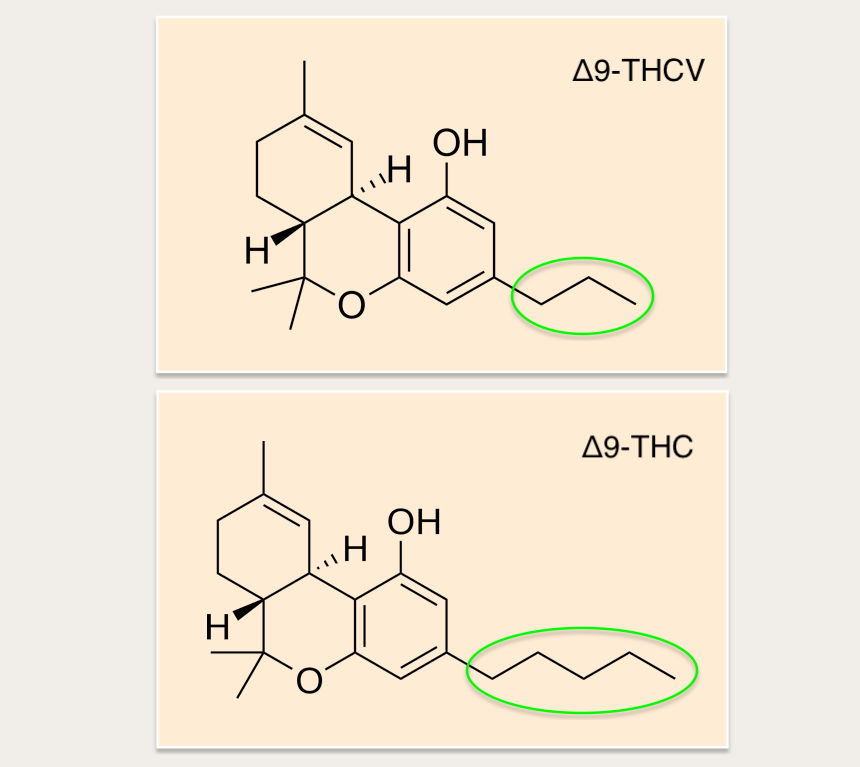Tetrahydrocannabivarin (THCV) is a cannabinoid compound found in cannabis and hemp plants. It's chemically comparable to tetrahydrocannabinol (THC) but with some essential distinctions. Here's whatever you need to understand about THCV consisting of the threats, advantages, distinctions, and similarities with other forms of THC and more. What Is THCV? THCV is a less typical cannabinoid found in some stress of marijuana, especially African sativa.
 Tetrahydrocannabivarin (THCV) - Original FARM
Tetrahydrocannabivarin (THCV) - Original FARM
 THCV: What are the Benefits; Does it Get You High? - Vaping360
THCV: What are the Benefits; Does it Get You High? - Vaping360
 THCV - The Cannabinoid of the Month at Champlain Valley Dispensary
THCV - The Cannabinoid of the Month at Champlain Valley Dispensary
THCV has a 3-carbon side chain instead of THC's 5-carbon side chain. This distinction is subtle, however it has a visible effect on the result profile. THCV is somewhat psychedelic however only about and about. What Does THCV Seem like? THCV has a strong energy-boosting part to it, which makes it particularly popular amongst students and professional athletes.
In the United States, THCV regulation is nuanced. THCV is not a Schedule I Drug, however marijuana extracts are making it somewhat uncertain what the federal position is on THCV. The 2018 Farm Expense states that hemp plants and all derivatives of the plants are legal on a federal level, many business abide by this law and still supply THCV to consumers by just extracting the compound from hemp plants.
If THCV is considered a THC analog, it could be managed in the future by the same guidelines as THC under the Federal Analog Act. This act specifies that any compound that shares a similar molecular profile as a known prohibited substance it's included in the same drug Set up classification.
What Are the Results of THCV? Advocates of THCV report that it produces an extreme burst of energy and makes them feel blissful without the mental cloudiness triggered by THC. The effects are extremely mild compared to THC. The effects are nearly exclusively cognitive yet in some way have really little effect on headspace.
2. THCV & Hunger Some THCV users claim that it curbs their appetite. This is a common effect of other focus-enhancing compounds also. It's as though THCV eliminates the distraction of other bodily procedures (like cravings) in order to maintain resources and attention to cognitive tasks rather. How Does THCV Work? Cannabinoids produce biological results in the body by connecting with endocannabinoid receptors.
CB1 receptors lie in the nerve system and connect with neurotransmitters in the brain to produce mind-altering impacts. Interaction with CB1 websites is what provides some cannabinoids like THC their psychoactivity. THCV is a bit challenging to understand since it's mostly a CB1 villain, meaning it has the opposite result as THC.
While researchers are still looking for to comprehend this process, it appears THCV is able to block the results of CB1 in low doses and promote them in high dosages. CB2 receptors are found mostly in the immune system. THCV is a partial agonist of CB2, but the results of this partial activity aren't widely known, and it apparently has no noticeable effect on THCV users' experience.
As discussed in the previous area, THCV is a CB1 antagonist in low doses which is the precise opposite impact of delta 8 and delta 9 THC. This might imply that THCV combats a few of the psychedelic effects of THC. This effect could describe why people who use THCV feel so clear-headed specifically compared to the infamous "fogginess" caused by delta 9 THC.